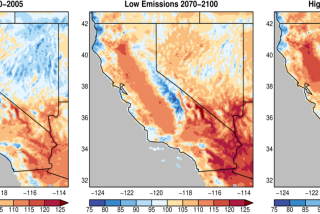Texaco Seeks to Block Texas Bond : Federal Court Asked to Suspend Order for Pennzoil Lien
- Share via
NEW YORK — Texaco said Monday that it has filed suit in federal court here to suspend a Texas state court order requiring the company to post an $11-billion appeals bond and giving Pennzoil a lien on billions of dollars of Texaco assets.
The lawsuit is the latest development in the battle between the two companies over a Texas jury’s $11-billion award to Pennzoil for what it found was Texaco’s illegal interference with Pennzoil’s planned 1984 acquisition of Los Angeles-based Getty Oil. In it, Texaco cites mounting indications that its access to worldwide credit markets has all but disappeared.
Lawyers and others familiar with what has become a classic legal battle said the filing is an obvious attempt by Texaco to buy time to negotiate an out-of-court settlement with Pennzoil on other than Pennzoil’s terms.
“It’s novel but certainly prudent,” said Stephen Susman, an experienced corporate attorney in Houston.
Texaco acquired Getty last year by outbidding Pennzoil after the latter company had signed a tentative agreement for Getty.
Texaco’s latest legal foray, filed Friday but first disclosed Monday, argues that its very survival is jeopardized by the Texas court system’s requirement that an appellant post a cash bond equal to the amount of a judgment before its appeal can be heard.
The White Plains, N.Y.-based oil giant had made similar arguments last week before Texas District Court Judge Solomon Casseb Jr., who presided over the end of the case, but Casseb affirmed the jury award on Dec. 10.
Casseb’s confirmation of the jury award and the bond requirement, Texaco said in its federal court filing, means that “Texaco will cease to exist in any recognizable form long before the appellate review process can be completed--and perhaps before it can even be commenced.”
The federal court’s intervention is necessary, the company argues, because Texas state law gave Judge Casseb no alternative but to impose the bond requirement and lien. That inflexibility violates the U.S. Constitution’s bar against any state’s interference with interstate commerce, as well as several federal statutes, Texaco argued.
In a statement released Monday, Texaco said Casseb’s order “does not provide adequate protection for Texaco during the full appeal process. Efforts have been made to negotiate with Pennzoil toward obtaining that protection. To date, those efforts have not been successful.”
Pennzoil has 20 days to respond in writing to Texaco’s request for a temporary restraining order; no date for a hearing has been set. Pennzoil made no corporate response to the filing, although over the weekend company lawyers called the filing “frivolous.”
Meanwhile, Texaco said the jury award and the prospect that it might have to seek bankruptcy protection against it has already had a wide impact on its financial condition.
Investors and commercial lenders are “threatening to cut off Texaco’s credit,” according to the lawsuit. Asked to elaborate, a company spokesman said: “We have held discussions with banks in planning for our financial strategy, but we consider them proprietary in nature.” Spokesmen for Manufacturers Hanover Trust Co. and Chase Manhattan Bank, two of Texaco’s lead banks, similarly declined to comment.
Texaco also said it has been substantially shut out of the commercial paper market, through which major corporations obtain short-term loans, and “is rapidly being foreclosed” from the domestic and European bond markets.
Furthermore, major suppliers have or are threatening to place deliveries to Texaco on a cash basis, and potential partners have withdrawn or delayed joint ventures.
Oil industry analysts disagreed Monday over how long it might take Texaco to experience a genuine cash crunch because of the Texas judgment.
The company has been generating as much as $4.5 billion in annual cash flow, said Alan Edgar, an analyst with the Houston investment firm of Schneider, Bernet & Hickman.
“They certainly wouldn’t be hurting if they cut back on drilling, where they spend $2.5 billion and have one of the worst results in the business,” he said.
Others noted that Texaco’s ability to generate cash internally has meant that its demand for outside credit is modest. A Texaco spokesman said the company is currently “generating enough cash through normal operations to satisfy our requirements.”
Still, the company’s debt securities have taken a beating in the bond markets. Its $1-billion Eurobond offering, floated last summer, has dropped in price by 15%, Edgar said. Furthermore, Texaco 8.875% bonds due in 2008 are currently trading for about $750 per $1,000 face value, a yield of 12.25%. By contrast, that is 3 full percentage points higher than benchmark yields on Treasury securities.
More to Read
Inside the business of entertainment
The Wide Shot brings you news, analysis and insights on everything from streaming wars to production — and what it all means for the future.
You may occasionally receive promotional content from the Los Angeles Times.










